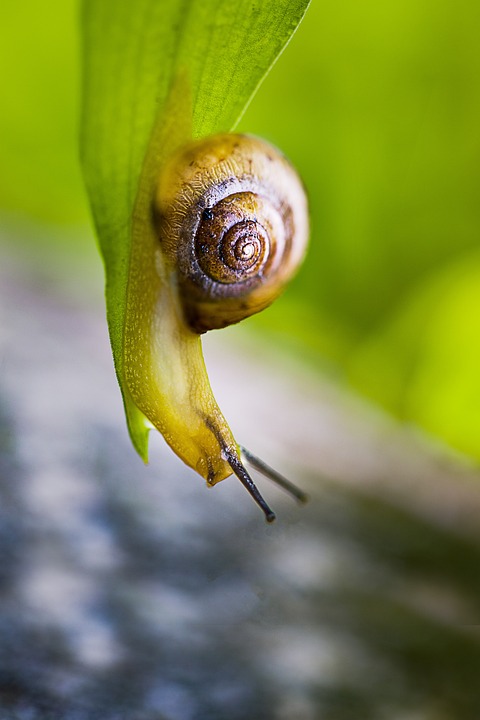The Science of Sleep: What We Can Learn from Animal Hibernation
Sleep is a universal phenomenon observed across various species, playing a crucial role in health and vitality. While humans spend about a third of their lives sleeping, many animals go one step further, entering states of hibernation that can last for weeks or even months. This remarkable adaptation offers rich insights into the science of sleep and its evolutionary significance.
Understanding Hibernation
Hibernation is often regarded as a survival strategy adopted by certain animals during adverse conditions, particularly winter. Characterized by a dramatic reduction in metabolism, heart rate, and body temperature, hibernation allows animals to conserve energy when food is scarce. Unlike regular sleep, hibernation can lead to significant physiological changes, including marked reductions in metabolic rates and a complete change in the body’s normal functions.
Types of Hibernation
-
True Hibernation: Animals like ground squirrels, bears, and certain bat species experience deep hibernation, where their metabolic rates drop significantly, and they enter a state of torpor. This state can last for weeks, during which animals are difficult to awaken.
- Daily Torpor: Some species, such as certain birds and small mammals, undergo daily cycles of torpor that last for several hours. This state resembles a lighter form of hibernation, allowing them to conserve energy during the day when food is less available.
Lessons from Hibernation
1. Metabolic Regulation
Hibernators exhibit advanced metabolic regulation. During hibernation, their bodies utilize fat reserves and minimize energy expenditure—capabilities that might inform human medicine. Understanding the biochemical pathways that enable this energy conservation could lead to breakthroughs in weight management and the treatment of metabolic diseases. For example, research into how hibernating animals switch off and manage their metabolic processes could aid in developing strategies for combating obesity and diabetes.
2. Sleep Cycles
Research has shown that hibernating animals alternate between periods of deep sleep and lighter states, much like humans. The presence of sleep cycles in hibernators, such as REM-like states, enables scientists to investigate how these cycles help in maintaining bodily functions during periods of extended inactivity. By studying these sleep cycles, scientists may better understand sleep disorders in humans and develop more effective treatments. Insights gained from hibernators could assist in managing conditions like insomnia, sleep apnea, and other sleep-related issues.
3. Stress Resistance
Hibernators also exhibit resilience to stress. During extreme cold or food scarcity, their bodies can withstand stressors that would typically be detrimental. This ability to enter a low-energy state while facing harsh environmental changes could inform research into human resilience and recovery from trauma or chronic stress responses. Understanding these mechanisms could contribute to improving mental health strategies and approaches to stress management.
4. Brain Preservation
A fascinating aspect of hibernation is its protective effect on the brain. While in a hibernative state, certain mechanisms appear to shield the brain from neurodegeneration and oxidative stress. By investigating these neuroprotective mechanisms, researchers could unlock new advancements in understanding and treating neurodegenerative diseases like Alzheimer’s and Parkinson’s. Hibernating animals showcase how reducing metabolic rates during stress can stabilize cellular functions and preserve vital brain activities, offering profound implications for future therapies.
5. Temperature Adaptation
Hibernation also provides insights into how organisms adapt to temperature extremes. For instance, the ability of certain animals to lower their body temperature significantly without harm could inspire new approaches in critical care and surgical practices, where induced hypothermia is utilized to protect organs during procedures. This research offers a valuable understanding of how temperature regulation contributes to organismal survival and health in dynamic environments.
Implications for Human Sleep
The study of animal hibernation has left an indelible mark on our understanding of sleep. While it may seem far removed from human experiences, the adaptations learned from nature could illuminate new paths for enhancing sleep quality and overall health.
Advances in Sleep Medicine
Research inspired by hibernation is paving the way for novel therapeutic strategies. Hypnotherapy methods, for example, may incorporate principles derived from hibernation research, promoting restorative sleep patterns. With alterations in lifestyle and environmental pressures affecting sleep quality, understanding hibernation can yield techniques and tools to improve sleep hygiene.
Additionally, as scientists unravel the genetics of hibernation, we may discover new avenues for treating sleep disorders. Genetic research could lead to potential interventions that induce restorative sleep mechanisms, allowing for better performance and recovery in the general population.
Conclusion
Hibernation is a fascinating testament to the diversity of life on Earth and its myriad survival strategies. By studying these remarkable adaptations, we gain not only a deeper appreciation for the complexities of sleep but also valuable insights that could influence human health and medicine. The secrets of hibernation remind us that there is still much to learn from the natural world—implications that resonate heavily in the quest for better sleep and well-being.
As we delve deeper into the science of sleep, it becomes clear that the lessons from hibernating animals are as profound as they are diverse, offering pathways to enhance our understanding of life’s most enigmatic state. Insights gleaned from nature’s ability to adapt and survive inform not only our knowledge of sleep but also our overall approach to health in our increasingly fast-paced lifestyles. Embracing these lessons may help us find innovative ways to connect with our biological levers and optimize our health for the better.


























Add Comment